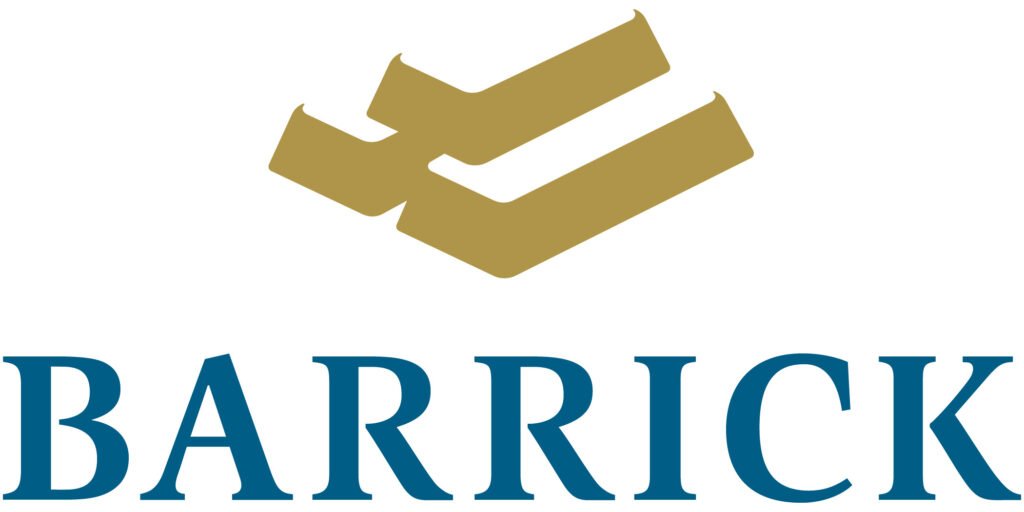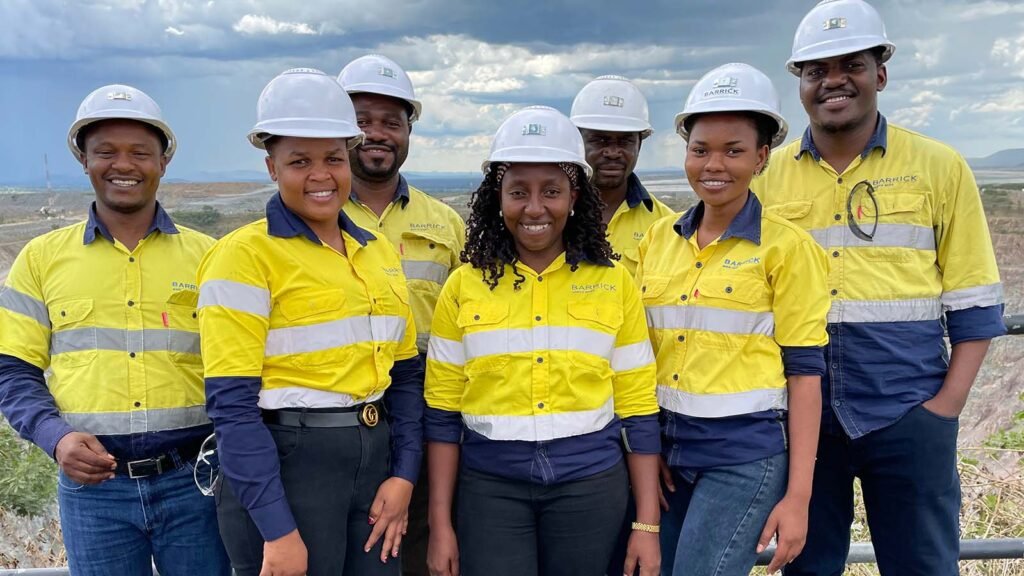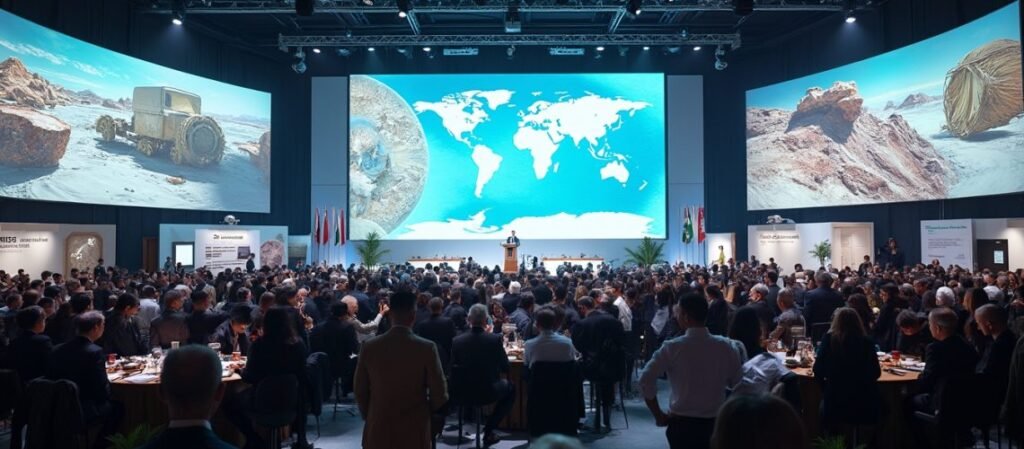Barrick Mining Africa

Barrick Gold Corporation, one of the world’s largest gold mining companies, has a major presence across Africa, operating some of the continent’s most significant gold and copper-gold assets. With a focus on sustainability, safety, and local value creation, Barrick plays a strategic role in Africa’s mining sector.
Here’s a clear overview of Barrick’s operations in Africa.
1. Key African Operations
Kibali Gold Mine – Democratic Republic of Congo (DRC)
- Ownership: 45% Barrick (joint venture with AngloGold Ashanti and DRC state miner Gécamines)
- Type: Underground and open-pit gold mine
- Status: One of the largest and deepest underground gold mines in Africa
- Production: Over 800,000 ounces of gold annually
North Mara & Bulyanhulu – Tanzania
- Location: Northern Tanzania
- Ownership: 100% Barrick (since acquisition from Acacia Mining in 2019)
- North Mara: Open-pit and underground gold mine
- Bulyanhulu: Deep underground gold-copper-silver mine
- Community Focus: Major investments in water, health, and education programs
Loulo-Gounkoto Complex – Mali
- Ownership: 80% Barrick, 20% government of Mali
- Assets: Loulo, Gounkoto, and Fekola mines
- Fekola Mill: One of the lowest-cost gold operations in Africa
- Power Innovation: Hybrid solar-diesel power station reduces emissions
2. Economic and Social Impact
Barrick’s African operations contribute significantly to:
- Local employment – Tens of thousands of direct and indirect jobs
- Government revenue – Taxes, royalties, and dividends
- Infrastructure development – Roads, power, water supply
- Skills training and community investment – Health clinics, schools, and SME support
In Tanzania alone, Barrick has invested over $1 billion in community and infrastructure projects since 2019.

3. Sustainability and ESG Commitment
Barrick adheres to global standards in:
- Environmental stewardship – Water recycling, land rehabilitation, carbon reduction
- Safety performance – “Zero Harm” goal across all sites
- Transparency – Publishes payments to governments (EITI compliance)
- Energy transition – Expanding solar and hybrid energy use in Mali and Tanzania
4. Challenges and Engagement
Despite progress, Barrick faces challenges such as:
- Security risks in parts of DRC and Mali
- Regulatory shifts in Tanzania and Mali
- Community relations requiring ongoing dialogue
The company emphasizes inclusive stakeholder engagement and long-term partnerships.

FAQs
Q1: Where does Barrick operate in Africa?
A1: In Tanzania (North Mara, Bulyanhulu), DRC (Kibali), and Mali (Loulo-Gounkoto).
Q2: Is Barrick the largest gold miner in Africa?
A2: It is among the top producers, particularly through Kibali and Fekola, which rank among Africa’s highest-output gold mines.
Q3: Does Barrick use renewable energy in Africa?
A3: Yes—solar power supports operations in Mali and Tanzania, reducing reliance on diesel.
Conclusion
Barrick Mining Africa represents world-class gold and copper production with a strong commitment to responsible mining, innovation, and shared value. As demand for metals grows, Barrick continues to strengthen its footprint across the continent through efficiency, sustainability, and partnership.

